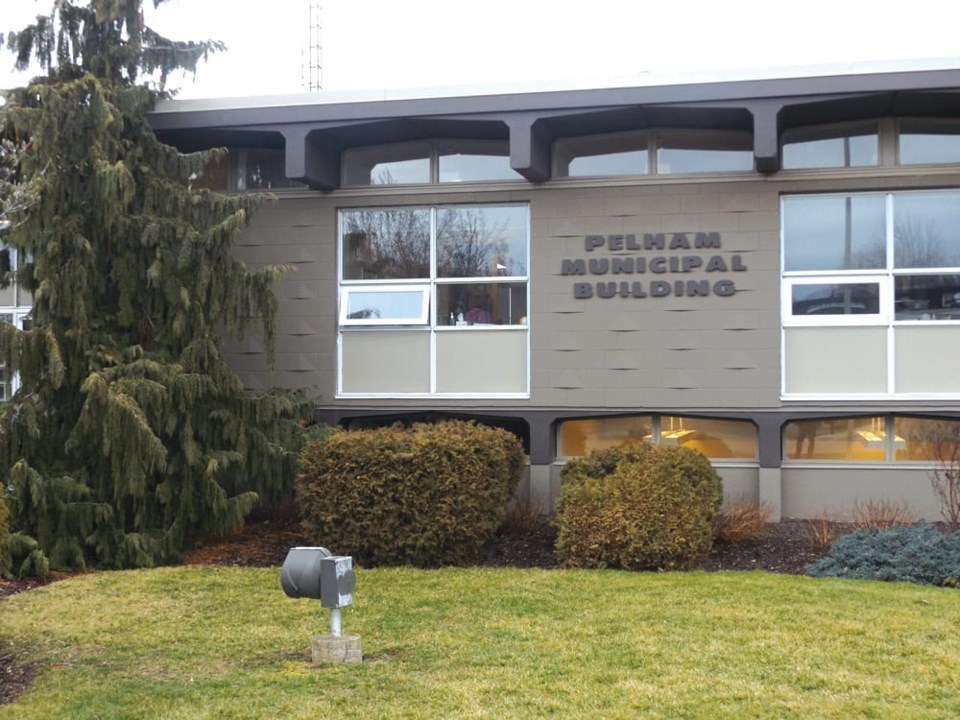Members face long climb up mountain of paperwork, options, meaning permanent bylaw may be delayed
BY GLORIA J. KATCH Special to the VOICE
Marijuana grow-operations, outdoor gardens, marijuana festivals and how these affect a myriad of plans, bylaws and legislation regarding agriculture, the environment, and road conditions were just some of the topics aired in last Wednesday’s meeting of Pelham’s new Cannabis Control Committee. Waving a handful of paperwork, Tim Nohara, Chair of the committee, stated because of the long list of concerns, reports and a public consultation process, amendments to the town’s Planning Act and bylaws to control cannabis were not likely to be completed before their due date. As a result, the committee approved recommending to council that it extend the interim control bylaw for one more year, to October 2020. The motion will be received by council on July 15, if needed.
In the meantime, Nohara said if the committee reviews the upcoming government research, and reports by the Town’s Planning Department, and the committee feels it can  complete its goals, “then super,” he said. Otherwise, the laborious issues, public and stakeholder feedback and summer holidays were going to make it difficult to fulfill the obligations of the committee prior to September 16, when council is scheduled to receive the proposed amendments to the Cannabis Official Plan Amendment, related zoning bylaw and nuisance bylaw.
complete its goals, “then super,” he said. Otherwise, the laborious issues, public and stakeholder feedback and summer holidays were going to make it difficult to fulfill the obligations of the committee prior to September 16, when council is scheduled to receive the proposed amendments to the Cannabis Official Plan Amendment, related zoning bylaw and nuisance bylaw.
“I don’t see how we can review such an ambitious set of proposals in this time frame,” he said.
Barb Wiens, Director of Planning and Development, said, “I’m hopeful that we can do it in this timeframe.”
According to the current timeline, a draft of the Official Planning Act, Zoning Bylaw Amendment and Nuisance Bylaw would be forwarded to the committee by June 26. In mid- August, a public consultation meeting would be held to receive input. The Cannabis Control Committee would review the comments and adjust any recommendations for the Policy and Procedures Committee, which would then fine-tune the amendments for council by September 16 for final approval.
Councillor Mike Ciolfi told the Voice, “It’s kind of like trying to build a $10 million bridge in six months,” adding, “all of the people on the committee are volunteers and many of them work, so it’s difficult.”
Resident member Bill Heska asked if the Town was considering legislation from other municipalities to assist them in developing policy terms, although he added there appears to be a great deal of inconsistencies within different municipalities.
Wiens replied, “There is not a lot of consistency, and we have to look at the existing landscape in Pelham. You can’t put in zoning bylaws that will be prohibited. That is not going to fly.”
Resident member Jim Jeffs said that according to MPP Sam Oosterhoff, municipalities wanting to protect agricultural lands from being used for cannabis growth and facilities could do so by limiting cannabis facilities to industrial-zoned areas.
Wiens replied, “I don’t know if that would withstand a court challenge.” She reminded the group that marijuana was legal in Canada, and said, “My understanding is if someone gets a licence at the federal level we can’t interfere.”
Wiens assured the group she was monitoring court cases on marijuana grow-ops, and would get clarity on licensing, which she would bring to the next meeting. Such legal decisions could affect how future amendments are written. Wiens also cautioned against over-regulating, which puts the Town at risk of defying the Charter of Rights and Freedoms. Over-regulating can also have a negative affect on greenhouse businesses that don’t grow marijuana. Last week, council passed a bylaw stating that greenhouses were now required to have a site plan agreement before they could set up operations in Pelham.
Wiens noted the Town’s authority primarily deals with amending the Town’s Official Plan. Albeit, Wiens admits the interim control bylaw is meant to address large policy gaps that need to be “tightened up,” which gave the group some reassurance that changes could be made to control where marijuana facilities are located.
The committee is examining all areas and possibly any legal loopholes to control large grow-ops, including wastewater usage, environmental laws, and traffic monitoring. Councillor Ciolfi asked if cannabis grower CannTrust, in Fenwick, was on a sewer system. Wiens replied that the operation is on a septic system, and its effluent is less than 10,000 meters a day per property. CannTrust monitors its system’s effluent, and both the Region and Ministry of the Environment require this data. “All the irrigation water is recycled for their own use, and they recycle their own internal water,” she said, adding, “Their standards are high.”
Pelham greenhouse operator Louis Damm said he is aware of septic systems that have “crashed,” but Wiens pointed out CannTrust submits water samples for monitoring. She also added that the Region can conduct inspections of septic system at any time.
Retired Pelham business owner and one-time mayoral candidate Carla Baxter, Vice-Chair of the committee, asked if country roads could sustain the additional traffic required to haul away the effluent. Wiens replied Pelham’s roads are designed to handle the capacity. About every ten years, she said, there is a road study done in Pelham that includes engineering reports, and that information is used to determine the Town’s capital budgets. Interim CAO and Town Treasurer Teresa Quinlin added there is a “pavement condition index” on all roads, which can be compared to road conditions five years previously to determine the shape they’re in. Roads are rated according to when they need to be repaired, noted Wiens.
With respect to Leviathan, a cannabis grower seeking to build a greenhouse facility in Fenwick, Councillor Ciolfi said traffic monitoring should consider the number of employees working at the facility as well. Carla Baxter added, “Leviathan already has a negative impact and there are a lot of people in the area who want to move out, and it prevents people moving in.”
Opening the meeting, Wiens outlined the three tiers of government and how agricultural lands must be protected and comply with land use plans, which in Niagara include: the Greenbelt, the Niagara Escarpment Planning and Development Act, and A Place to Grow Plan. More importantly, the Town is waiting for the Region to complete its official plan, and Pelham will have to align with it, she said. Nohara said the Region’s plan is “very good and will not limit us in what we want to do.”
Jeffs asked if marijuana facilities were allowed to make oil under agricultural tenets. Wiens replied that CannTrust was allowed to treat and package marijuana, and that oil products were actually produced at its facility in Vaughn. Agricultural guidelines permit production of by-products, noting that wineries and fruit farmers are also allowed to make juice. The definition of agriculture is “pretty broad,” in scope, pointed out Wiens, which includes crop growing, livestock, poultry, aquaculture, maple syrup production, etc.
Louis Damm stated the Town needed to look at the effluent levels, as there is a difference between a small business and a large industry.
“The wine industry went through this,” he said, suggesting this is an area the Town needs to pay attention to. Wiens admitted that “the scale and intensity” of grow-ops are important considerations for the committee.
When Baxter asked if CannTrust could host a festival, Wiens stated that the company is allowed to do sampling as do wineries, and they could host such an event. However, any large gathering would require a permit, she said.
At the close of this second committee meeting, Quinlin stated she was “very impressed” by the amount of the work already completed.
Councillor Ciolfi told the Voice he is still awaiting a report from MPP Oosterhoff on what can be done at the provincial level to assist Pelham on this issue. When asked if he was monitoring complaints, he replied, “no,” but receives emails constantly from residents, particularly from the Cherry Ridge and Balfour Street area subdivisions.
“Now that it’s summer, people want to be outside, and they can’t enjoy their pool or hang their clothes on the line, because of the smell,” he said. But Ciolfi was optimistic.
“We’re starting to get things accomplished.”



